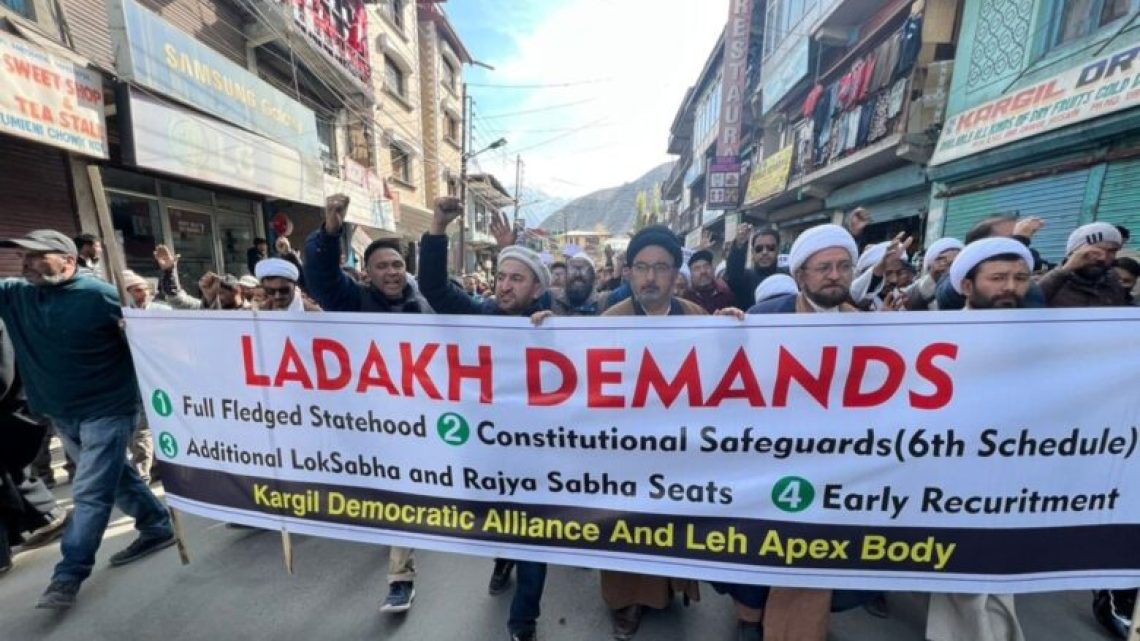
Outrage in Ladakh: Sonam Wangchuk’s Detention Sparks Protests against Indian Authorities
October 3, 2024The detention of renowned climate activist Sonam Wangchuk by Delhi Police has ignited widespread outrage in Ladakh, a region in Indian illegally occupied Jammu and Kashmir (IIOJK). This incident prompted a complete strike across the area.
In response to Wangchuk’s arrest, the Leh Apex Body and Kargil Democratic Alliance organized the shutdown. They aim to protest his detention while advocating for Sixth Schedule status for Ladakh. This status would provide greater protections for the region’s land, property, and cultural rights against external influences.
Wangchuk was apprehended while leading a march from Leh to Delhi to advocate for the rights of Ladakh. On September 30, 2024, over 120 protesters, including Wangchuk, were detained at the Delhi-Haryana border. The march aimed to press the central government to reopen dialogue with Ladakh’s leadership regarding their pressing demands.
Large crowds gathered at Leh’s NDS Stadium to show support for Wangchuk and the cause he represents. Chhering Dorje Lakrook, president of the Ladakh Buddhist Association, addressed the crowd, highlighting the unity against perceived injustices facing the region.
In a show of solidarity, Sajjad Kargili, a social activist from Kargil, initiated a hunger strike following his own detention. He called on the Modi administration to respect Ladakh’s demands and avoid suppressing local voices.
The Kargil Democratic Alliance condemned the detentions, labeling them a violation of fundamental rights and democratic principles. Their statement underscores the belief that such actions threaten the very fabric of democracy in the region.
This movement reflects a growing discontent in Ladakh regarding the lack of autonomy and recognition of its unique identity. The demand for Sixth Schedule status is rooted in a desire for self-governance and protection of local interests.
The protests serve as a reminder of the strong resolve among Ladakhis to secure their rights. Activists believe that the region’s distinct cultural and environmental characteristics must be preserved amidst external pressures.
As tensions rise, the need for a dialogue between the central government and Ladakhi leaders becomes increasingly urgent. The protesters emphasize that their demands are not only about Wangchuk but also about the future of Ladakh.
The outrage following Sonam Wangchuk’s detention underscores the basic aspirations of the people of Ladakh. Their quest for recognition and rights is gaining momentum, signaling a pivotal moment in the region’s ongoing struggle.

